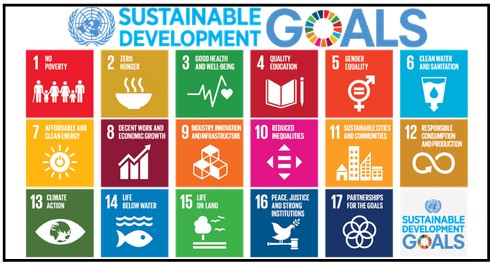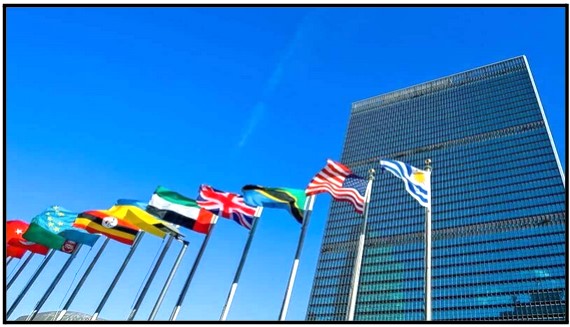GS2-International Relations
Introduction:
Recently, the United Nations (UN) released the "Financing for Sustainable Development Report 2024."
This comprehensive report brings to light the urgent need for heightened investment in sustainable development to achieve the Sustainable Development Goals (SDGs) by 2030. Let's delve into the key highlights and crucial insights provided by this seminal report.
Understanding the Sustainable Development Goals (SDGs):
The SDGs, comprising 17 interconnected goals established by the UN in 2015, represent a universal blueprint for fostering peace and prosperity for both people and the planet. These goals mandate collective action from all nations, regardless of their development status, to address pressing global challenges such as poverty eradication, climate change mitigation, and gender equality.
The Evolution of SDGs:
The journey towards the SDGs began over two decades ago with the adoption of Agenda 21 at the Earth Summit in Rio de Janeiro, Brazil, in 1992. This momentum culminated in the adoption of the SDGs by all UN Member States, signifying a global commitment to sustainable development. Subsequent summits and conferences, including the Millennium Summit in 2000 and the United Nations Conference on Sustainable Development (Rio+20) in 2012, further solidified the agenda.
Essential Insights from the Report
The Financing for Sustainable Development Report 2024 paints a sobering picture of the current global landscape, highlighting a sustainable development crisis exacerbated by financing challenges. The report underscores several critical issues:
- Sustainable Development Crisis: The world grapples with a sustainable development crisis, compounded by geopolitical tensions, climate disasters, and a global cost of living crisis. These challenges impede progress on crucial development targets, jeopardizing the wellbeing of billions.
- The Finance Divide: Developing countries bear the brunt of exorbitant debt burdens and soaring borrowing costs, hindering their ability to respond to multifaceted crises effectively. The report reveals that developing countries pay around twice as much on average in interest on their total sovereign debt stock as developed countries.
- The Financing Gap: The report highlights a staggering financing gap, estimated at USD 4.2 trillion annually, underscoring the magnitude of the challenge at hand. This represents a more than 50% increase over pre pandemic estimates, emphasizing the urgent need for concerted action.
- Weak Enabling Environments: Existing policy and regulatory frameworks often fail to incentivize sustainable investment, leading to misaligned public budgets and insufficient private sector engagement. Average global growth has declined, while policy and regulatory frameworks still do not set appropriate incentives for sustainable development.
- Closing Window: While the window to achieve the SDGs remains open, swift and decisive action is imperative to avert a climate catastrophe and ensure a sustainable future for generations to come.
Proposed Solutions
The report advocates for urgent and concerted efforts to bridge existing gaps and accelerate progress towards the SDGs. It outlines four key actions:
- Close financing gaps for SDG/climate investments, both public and private, at scale and with urgency.
- Close policy and architecture gaps, and reform international institutions to better support sustainable development objectives.
- Foster trust and credibility in global partnerships, both international and domestically, to facilitate collaborative action.
- Formulate and finance new development pathways that prioritize sustainability and resilience.
Redefining International Financial Systems
The report underscores the need for a revamped international financial system capable of addressing contemporary challenges. Proposals include scaling up investments in the SDGs, strengthening multilateral development banks, and bolstering the global safety net for vulnerable nations. Additionally, the report calls for reforms in existing systems to align public budgets and spending with the SDGs and incentivize private investors to contribute to sustainable development initiatives.
Conclusion
In conclusion, the Financing for Sustainable Development Report 2024 serves as a clarion call for decisive action in the face of mounting challenges. As the world navigates a pivotal juncture, the report underscores the critical importance of mobilizing resources, reforming institutions, and charting a course towards sustainable development. It is incumbent upon governments, stakeholders, and citizens alike to heed this call and work collectively towards unlocking sustainable futures for all.

